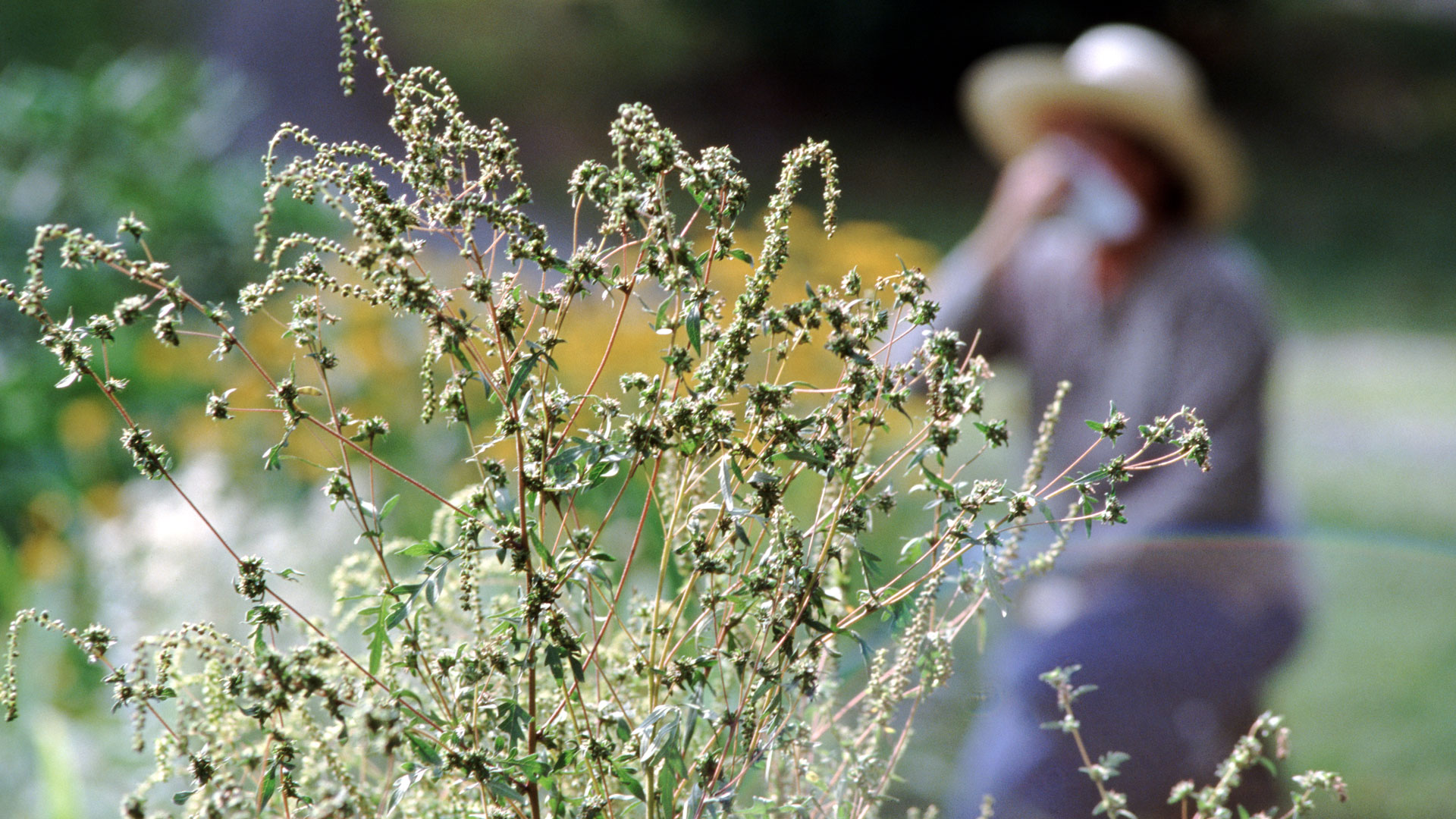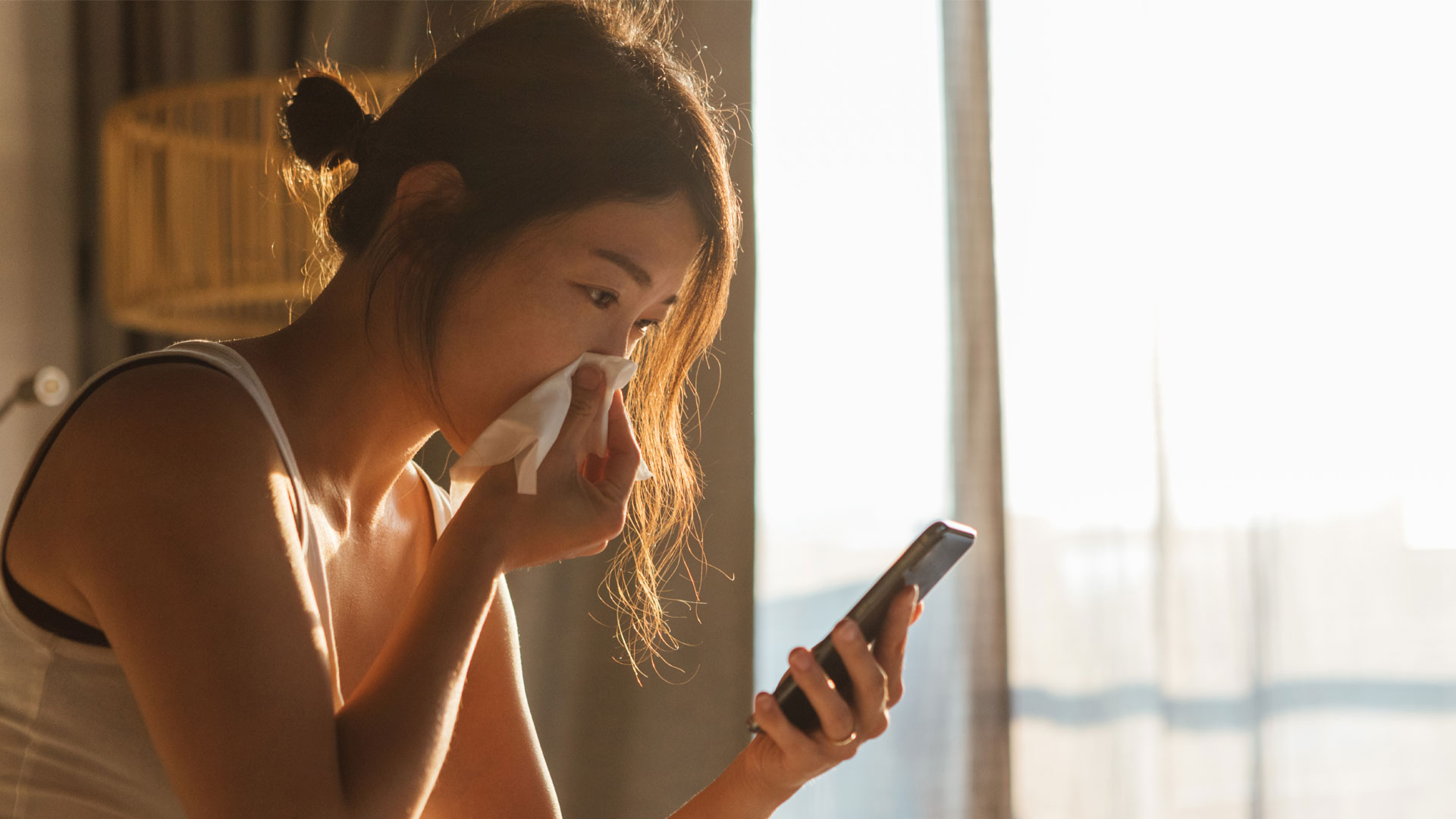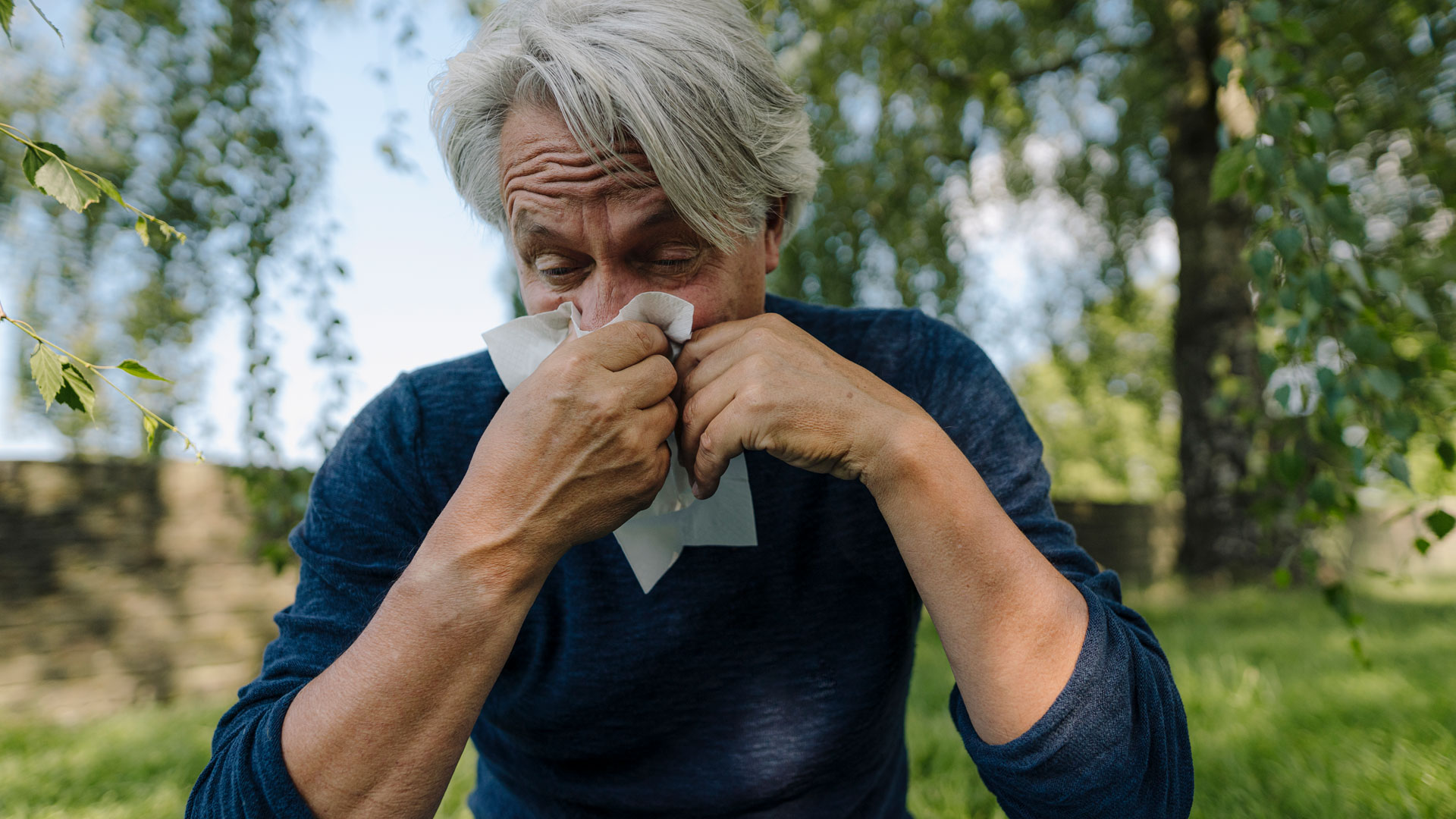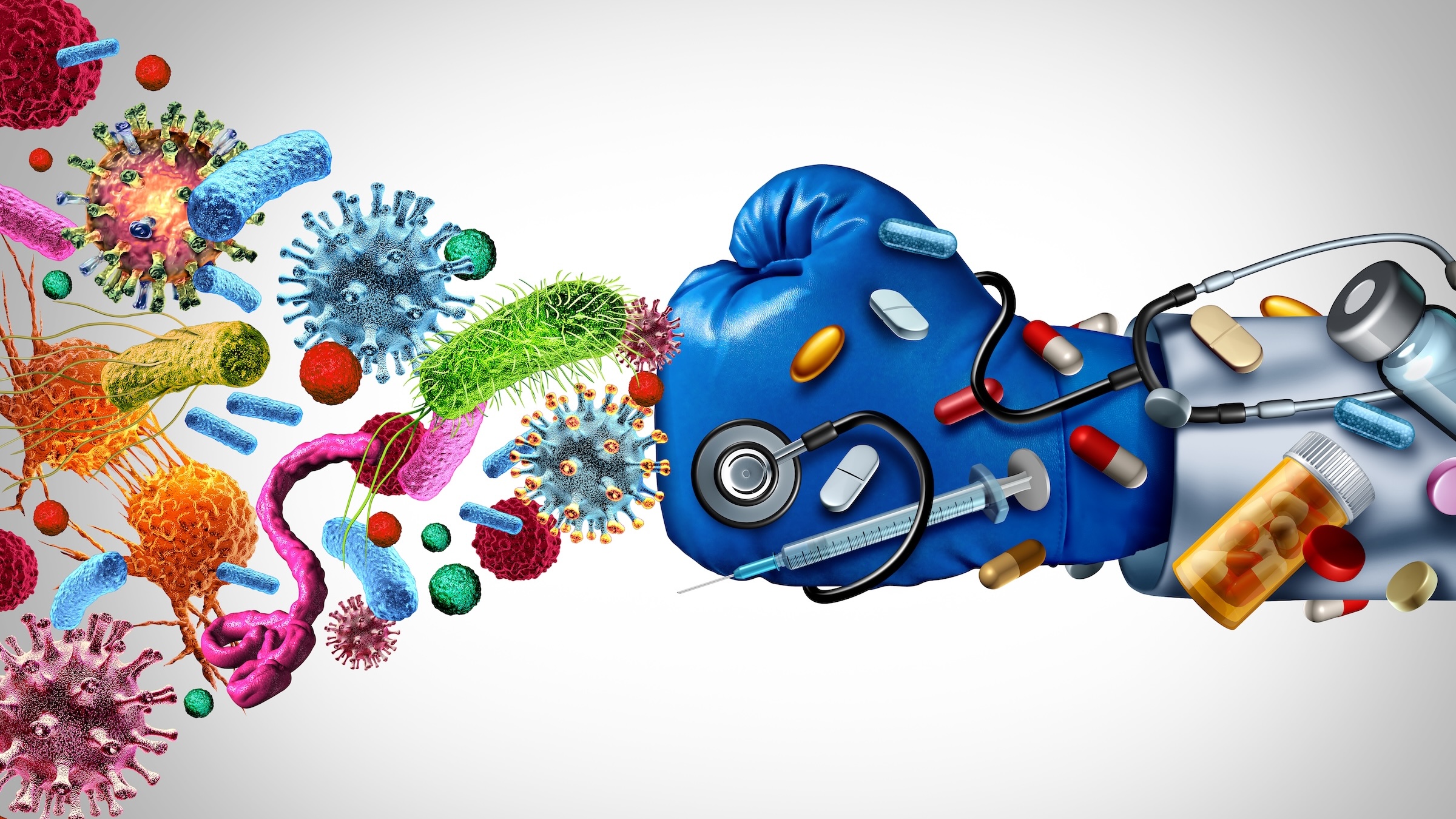9 allergy season symptoms
All the major allergy season symptoms and how to treat them.

Spring and summer are fun for some and terrifying for others because it marks the onset of lots of allergy season symptoms.
These two seasons are associated with allergy trouble because the many pollens and spores from trees and grasses are airborne and can trigger allergy symptoms. Allergy season differs for everyone due to their location and the seasonal trees and specific pollens in the air where they live and work. For instance, ragweed pollen is more prevalent in the fall months, so people sensitive to this particular pollen will only develop allergy symptoms in the fall.
The Centers for Disease Control and Prevention (CDC) states that 19.2 million adults and 5.2 million children reported hay fever symptoms in the United States in one year. These figures indicate that allergy season symptoms are common across all age groups.
Seasonal allergy symptoms include wheezing, itching, runny noses and swollen, irritated eyes. They often require close monitoring by a medical professional for accurate diagnosis and to prevent severe immunologic response in susceptible individuals.
In this article, Dr. Christopher Oseh, an experienced primary care physician, explains the characteristics of common allergy season symptoms and how to manage them with measures such as using the best air purifiers, remaining indoors or using nasal sprays. In a separate article, Doctor Oseh explains what causes allergies.
Common allergy season symptoms
Allergy season symptoms manifest in various ways and degrees depending on an individual’s immune system sensitivity. Drugs help to relieve some of these symptoms, while others may require avoiding exposure to the triggers. An individual with hay fever may have one or more of these symptoms.
1. Itching
Get the world’s most fascinating discoveries delivered straight to your inbox.
Itchiness occurs when mast cells, a type of white blood cell in your body, release a chemical called histamine. Itching can be localized in specific areas like the eyes, nose, or skin, or generalized, depending on the region of the body exposed to an allergen.
2. Dry cough
Throat irritation from postnasal drip causes a characteristic dry cough correlated with allergies. Postnasal drip is the flow of accumulated fluid and mucus from the back of the nasal cavity down into the throat.
3. Wheezing
Wheezing is a whistling sound heard most often in asthmatics or those with hypersensitive airways. The inflow of respiratory allergens causes the release of fluids and mucus that accumulates and blocks small airways in the lungs.
4. Runny nose
Inhaled airborne allergens trigger the production of fluids in the nose that accumulates and drains out of the nose. The nasal secretions are often clear but may appear mucoid.
5. Sneezing
This is a reflex response because of foreign bodies like pollens, dust, and other air particles in the nose. Sneezing serves as a defense mechanism to expel inhaled airborne allergens, which are nasal irritants.
6. Swollen eyes
Allergens exposed to the eyes stimulate a local inflammatory reaction together with tissue swelling in the eyes. In some people, this may be associated with teary eyes, which is the body’s way to flush out foreign particles in the eyes.
7. Sore throat
Inhaled allergens cause the production of fluid and thick mucus, which collects in the nose and flows down into the throat, leading to throat pain.
8. Red eyes
The local inflammatory reaction in the eyes increases blood flow, which appears as eye redness and eye discomfort.
9. Headaches
A classical dull headache may occur when inflammatory fluid and mucus block nasal sinuses, which are air spaces in the skull.

How to treat allergy season symptoms
The Asthma and Allergy Foundation of America (AAFA) states that allergy season treatment requires a multi-dimensional approach and depends on the presence of medical conditions such as asthma or chronic obstructive airway disease (COPD), both of which affect symptom severity. Different classes of drugs are used for allergy treatment, and the region of the body affected determines the route of drug administration. For instance, nasal congestion requires local therapy like nasal sprays, while anti-inflammatory eye drops treat allergy-induced eye swelling. We've also investigated whether air purifiers help with allergies.

Is it possible to prevent allergy season symptoms?
Use the following methods to avoid allergens or reduce exposure to them:
- Wear a pollen mask to avoid exposure to pollen
- Remain indoors during stormy days
- Avoid crowded rooms
- Cover your nose when someone close to you coughs or sneezes
- Install air purifiers to filter out airborne particles in your house
- Use warm saline to wash out inhaled airborne particles in your nose
Medication for allergy season symptoms
Antihistamines: These drugs block the effects of histamines in the tissue and help stop itchy symptoms irrespective of the location in the body. A study conducted to assess the efficacy of oral antihistamines in urticaria (allergic skin disease) revealed a significant improvement in the symptoms among subjects treated with antihistamines.
Corticosteroids: These are anti-inflammatory drugs that reduce inflammatory reactions, especially swelling in the body, locally or generally. Corticosteroids are available in various forms, such as nasal sprays, oral tablets, and creams. Nasal corticosteroids are sprays used to reduce nasal tissue swelling.
Doctors prescribe oral corticosteroids to reduce generalized inflammatory responses in the body and the creams are for skin reactions.
Another study conducted on the effect of intranasal steroids for relieving hay fever symptoms showed an improvement of these symptoms in study participants administered intranasal steroids.
Nasal decongestants: These are nasal sprays used to relieve nasal congestion due to fluid and mucus accumulation. Nasal decongestants are used for a maximum of three days because more prolonged use may increase the risk of nasal swelling due to rebound effects.
Mast cell stabilizers: This class of drugs prevents mast cells from releasing histamine, which causes local or generalized itching.
Allergy immunotherapy: This therapy entails the administration of specific allergens into the body with the aim of reducing the hypersensitivity response of the immune system. This requires the administration of allergy shots to individuals regularly over time to desensitize them to a particular allergen. Allergy immunotherapy is used only in severe allergies or when medications alone do not control symptoms. Allergy immunotherapy is best done before allergy season begins to prepare the immune system.
Allergy season symptoms present differently in each person. These symptoms can be non-specific and may cause life-threatening reactions like anaphylaxis, so it is essential to seek a medical doctor’s help for professional evaluation and counsel.
- Read more: What is the air quality index?
Dr. Christopher Oseh is an experienced primary care physician, health blogger, content marketing professional, and self-published author. He specializes in creating content for health care providers and health technology companies. He has been featured on Harvard Medical school blog and has also created content for a variety of health technology clients.
 Live Science Plus
Live Science Plus






